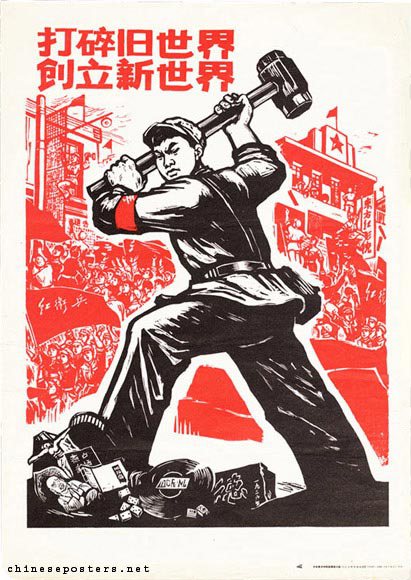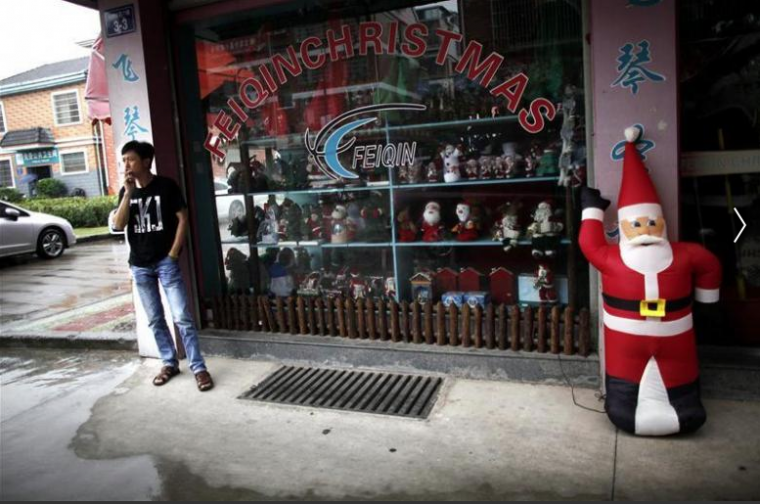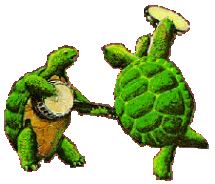 Chinese Propaganda Poster- “Scatter the old world, build the new.”
Chinese Propaganda Poster- “Scatter the old world, build the new.”
Could you picture a world devoid of books, a world where books are forbidden and where free expression in the arts and literature is restricted? We take the freedom of the written word for granted. Yet, there are places around the globe where books have been banned in the past and sadly still are subject to censorship in our present day world. Balzac and the Little Chinese Seamstress ( Balzac et la Petite Tailleuse Chinoise) by Dai Sijie is a book about books and a beautiful ode to literature. It’s a tender story of friendship and survival through the transformative power of literature, set in a very somber period in Chinese history and loosely based on the author’s own life.
The year is 1971 and we are in the mountainous countryside of China during the cultural revolution. The Great Proletarian Cultural Revolution was a movement initiated in the sixties by Mao Zedong to implement Communism and to eliminate capitalist influences and also to root out China’s ancient cultural heritage and the Four Olds: old customs, old culture, old habits , old ideas. To achieve this objective, places of worship and of historic interest were vandalized and ancient artifacts and relics which were once treasured, ruthlessly destroyed. Needless to say, it was a period of great unrest, turmoil and violence. Rapes, murders and suicides were commonplace. The young children of bourgeois intellectuals were banished from urban centers to rural areas in order to be purged of western ideas and to be re- educated by the peasants. The youngsters or China’s ‘lost generation’ were deprived not only of educational opportunities but also the right to live with their families and they experienced feelings of alienation brought on by the sudden exile.
In this tumultuous era, two young boys, a nameless narrator and his friend Lou, both sons of doctors, are sent for re- education to Phoenix Mountain in China. They are separated from their educated and well- off families and forced into agricultural labor. Their tasks include working in dangerous coal mines and carrying buckets filled with excrement on tortuous and slippery trails. They hope that they would be one among the three in a thousand to be sent back to the city despite their parents being deemed enemies of the people. They have to use their ingenuity and wit to get the better of the villagers and the village headman. They meet the little seamstress, a local girl who has not been exposed to books, music or the western way of life and both fall head over heels in love with her although it is Luo who manages to catch her attention. The boys discover that one of their friends from the city, Four Eyes, who has been sent to a neighboring village for re-education has a suitcase of forbidden books in his possession. They succeed in getting him to lend them a translation of a book by Balzac in exchange for a favor and once they have had a taste of the formidable French author, they have an insatiable thirst to read more.
“Picture, if you will, a boy of nineteen, still slumbering in the limbo of adolescence, having heard nothing but revolutionary blather about patriotism, Communism, ideology, and propaganda all his life, falling headlong into a story of awakening desire, passion, impulsive action, love, of all the subjects that had, until then, been hidden from me.”
When Four Eyes becomes the lucky one to get the opportunity to leave Phoenix Mountain, Luo and the narrator devise a plan to steal his suitcase of hidden books before his departure. They succeed by means of their cunning and resourcefulness and their lives are changed forever. The books have a profound effect on them and on the little seamstress too for the boys enact scenes from the books to her. So just as the boys are being re-educated to the ways of the peasants, the little seamstress is re-educated, in turn, by them in this Pygmalion like story.
I admire the author’s skill in managing to weave an enchanting tale interspersed with moments of comedy in spite of portraying a very grim period in history. The book is told from the perspective of the narrator except for the last few chapters where the point of view shifts. I don’t understand the rationale behind the change in structure as it disrupts the flow of the text. I was also a little disappointed by the conclusion. The romantic in me would have preferred a fairy tale ending for a story which reads like a fairy tale but on reflection, I can see why the ending is what it is and why it would not have been as impactful otherwise. I was a little taken aback by one sacrilegious act which seemed to negate the premise of the book. But I will not reveal anything more and risk ruining the plot for future readers.
The book transported me to a time and place foreign to me and gave me an insight into the political and cultural upheaval in the China of that period. I firmly believe that the best way to understand history is through travel or literature rather than following a bland textbook. But I mostly enjoyed the story for celebrating three pursuits close to my heart – storytelling, translating and reading. Luo and the narrator entertain the villagers by enacting stories of films they’ve watched and embellish their performances with the aid of their fertile imaginations. Luo laments the inevitable demise of this art form as people have moved beyond the age of The Arabian Nights. The art of storytelling is even more threatened in our modern digital world. The book is also a tribute to the art of translation. First of all, this book is itself a translation and the translator, Ina Rilke, has beautifully rendered the translation from the original French to English with her richly descriptive and evocative language. Secondly, the boys devour books by Flaubert, Gogol, Balzac and Dumas translated into Chinese in spite of the cultural differences, reinforcing the universal appeal of literature. I was reminded of my college days in India when my friends and I read Tolstoy, Dostoevsky, Camus and other authors in translation. I am grateful to translators for making an entirely different canon of literature available to readers all over the world.
Finally, it’s a book celebrating the love of books. Books allow us to escape and make life more bearable. The narrator, moved by Romain Rolland’s Jean-Christophe declares:
“I was carried away, swept along by the mighty stream of words pouring from the hundreds of pages. To me it was the ultimate book: once you had read it, neither your own life nor the world you lived in would ever look the same.”
I could say the same about Balzac and the Little Chinese Seamstress. It’s an unforgettable book that stays with you forever and rekindles your love of reading.
Advertisements Share this:- Share





